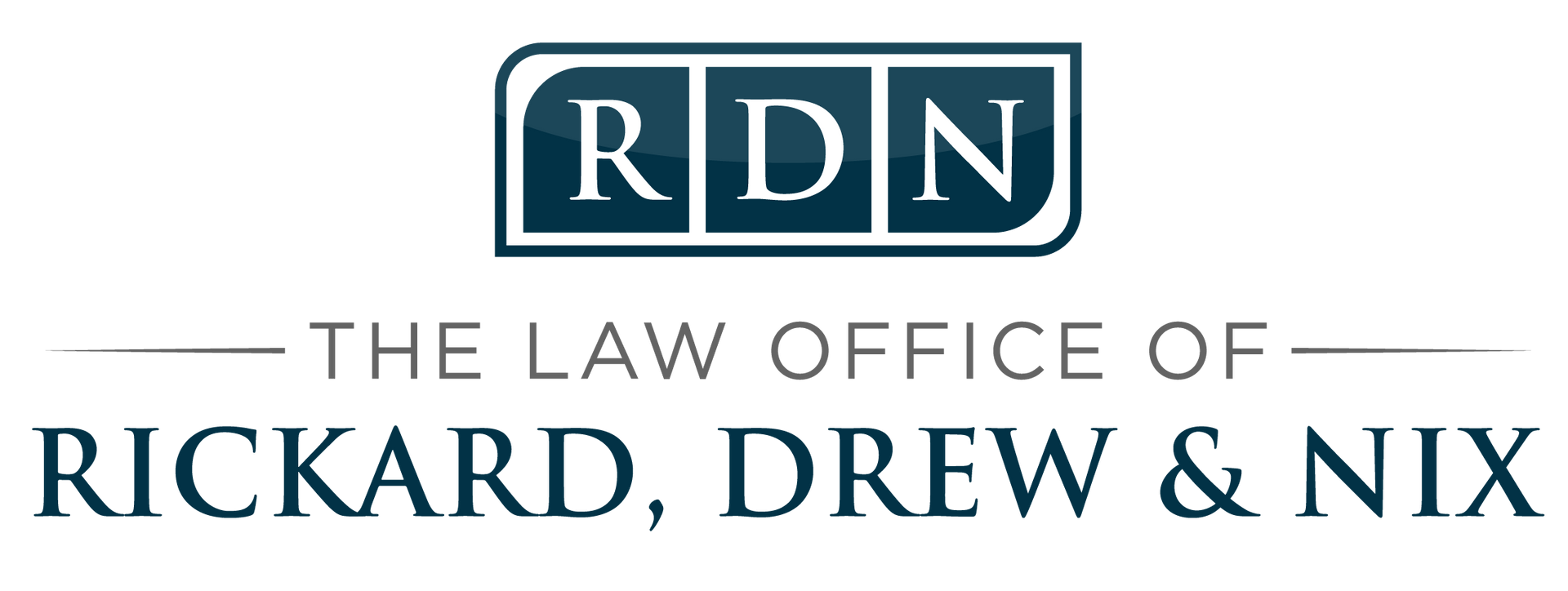Understanding Local Laws for Car Accidents in Atlanta
If you've been involved in a car accident before, you know full well what a legal mess it can be and how difficult the claims process is. Add to that the fact that car accident laws vary from state to state and city to city. Local car accident laws in Atlanta are hard to understand for victims with no prior interaction with the legal system. Georgia's myriad of laws can be a source of aggravation. To combat this, victims are advised to seek the advice of an experienced Atlanta attorney to guide them through this maze.
Car accidents can cause confusion and frustration, especially when confronted with local laws in Atlanta. Understanding the legal landscape is crucial for anyone involved in an accident. This article covers key points, including Atlanta's car accident reporting requirements, how comparative negligence affects liability, and the insurance mandated for drivers. By reading this content, readers will learn how to protect their rights, maximize their car accident settlement, and make sure they meet the necessary legal obligations after an accident. Addressing these challenges is essential for achieving justice and fair compensation.
Overview of Local Laws Governing Car Accidents in Atlanta
In Atlanta, motor vehicle accidents are primarily governed by Georgia state statutes. These laws outline the responsibilities of drivers and the protocols for responding to collisions. Understanding these regulations is crucial for anyone involved in an accident.
One important aspect of local laws is Georgia's fault system, which means the driver responsible for the accident may be liable for damages. Victims can seek compensation through health insurance coverage or by filing claims against the at-fault party's insurance. This evaluation process considers various factors, including medical expenses and lost wages.
Hit and run cases are treated seriously under Atlanta's legal framework. If a driver flees the scene after an accident, they can face significant penalties, including fines and potential jail time. This enforcement highlights the legal obligation to stop and provide information after any motor vehicle incident.
Additionally, Atlanta follows a two-year statute of limitations for personal injury claims resulting from car accidents. This time frame requires individuals to file their claims within two years from the date of the accident to secure the right to compensation. Awareness of this deadline is essential for victims seeking justice.
Atlanta's Car Accident Reporting Requirements
After a car accident in Atlanta, individuals must provide specific information to meet reporting requirements. This includes details like the date, time, location, and any related injuries from the car accident. Failure to report such incidents can lead to consequences, including issues with an insurance policy. Understanding these obligations is essential for all drivers to guarantee compliance and protect their rights.
What Information Must Be Submitted After a Car Accident?
After a car accident in Atlanta, it is essential to gather comprehensive information to adhere to reporting requirements. Victims should document the date, time, and exact location of the incident, along with details about any injuries sustained. This information not only helps in establishing the facts of the accident but also assists in proving any negligence involved, which can be crucial for evaluating potential claims for compensation.
Additionally, individuals must include specifics regarding the vehicles involved, such as license plate numbers and insurance information. Recording the speed limit of the area may also be relevant, particularly if there was a violation that contributed to the accident. Accurate and thorough reporting mitigates the risk of complications with insurance claims while bolstering a victim’s position when seeking justice for pain and suffering incurred during the incident.
Consequences of Failing to Report an Accident
Failing to report a car accident in Atlanta can lead to serious repercussions, especially when it comes to filing a lawsuit for property damage or personal injuries. If a driver does not report an accident, their insurance policy may not cover the incident, leaving them financially responsible for medical bills and vehicle repairs. This lack of documentation can greatly weaken their case if they seek compensation later, complicating the path to justice.
Additionally, neglecting to report an accident may lead to legal penalties under Atlanta law. Authorities may impose fines, and drivers could face challenges if they need to seek emergency assistance or file claims in the future. Full compliance with reporting requirements not only protects the driver’s rights but also helps establish a solid foundation for any potential claims, making it vital for individuals to understand their responsibilities following a collision.
Understanding Liability and Fault in Atlanta Car Accident Cases
In Atlanta car accident cases, understanding how Georgia defines shared fault is critical, particularly when issues arise from driving under the influence. The degree of fault assigned to each party can significantly influence compensation claims for victims suffering from injuries and damages. This section will detail the implications of fault on potential fees and the overall process of obtaining compensation after a vehicle accident.
How Does Georgia Define Shared Fault?
In Georgia, shared fault plays a significant role in determining liability in car accident cases. This system allows for multiple parties to be found at fault, meaning that car accident victims can still seek compensation even if they carry some degree of responsibility. For instance, if a defendant was engaging in reckless driving while the plaintiff also made a minor error, the court may assign a percentage of fault to each party. Understanding how shared fault operates is essential for victims seeking fair compensation for medical bills, therapy costs, and other related expenses resulting from the accident.
The concept of shared fault also affects how damages are calculated in personal injury claims. If car accident victims are deemed partially responsible, their compensation may be reduced by their percentage of fault. For example, if a plaintiff is found to be 20% at fault for the collision, their compensation might be decreased by that amount. As a result, it becomes vital for individuals involved in an accident to document the circumstances surrounding the incident and provide evidence that could support their claim while making sure they comply with local laws regarding emergency service notification.
Implications of Fault on Compensation Claims
The implications of fault on compensation claims in Atlanta can be significant. When a victim is found to have contributed to an accident, it may lead to a reduction in the total amount they can recover. For instance, if a plaintiff has a 30% share of the fault, their compensation could be decreased by that percentage, making it vital to gather strong evidence, such as witness statements or documentation of hazards leading to the incident, which can support their case.
Insurance Requirements for Drivers in Atlanta
In Georgia, drivers must adhere to specific insurance requirements to ensure financial protection in the event of a car accident. This section will address the minimum coverage limits mandated by state law and highlight the significance of uninsured motorist coverage, which offers crucial support for those injured in accidents involving at-fault drivers lacking adequate insurance. Understanding these insurance necessities enhances awareness of personal responsibility and can safeguard against potential liabilities.
Minimum Coverage Limits in Georgia
In Georgia, state law mandates specific minimum coverage limits for all drivers to ensure proper financial protection in the event of auto accident cases. Drivers must carry at least $25,000 in liability coverage for bodily injury per person, $50,000 per accident, and $25,000 for property damage. These requirements aim to enhance safety on the roads, offering financial support for those facing pain and suffering due to injuries caused by negligent or reckless actions, such as drunk driving.
Understanding the minimum coverage limits is essential for every driver. These limits serve as a foundation in personal injury law, protecting victims from severe financial burdens if they are involved in an accident. Without adequate insurance, drivers risk facing significant costs related to medical expenses and lost wages, making it crucial for individuals to familiarize themselves with these laws to guarantee compliance and security on the road.
The Role of Uninsured Motorist Coverage
Uninsured motorist coverage serves as a vital safety net for drivers in Atlanta, particularly in accident cases involving at-fault drivers who lack adequate insurance. This type of coverage can be crucial when filing a car accident claim after an incident, as it compensates victims for medical expenses and damages that would otherwise remain uncovered. Engaging with legal advice can help individuals understand how this coverage works and the details involved when pursuing compensation through a trial.
When a driver without sufficient insurance causes an accident, uninsured motorist coverage allows the injured party to access funds to cover their medical records and rehabilitation costs. This financial protection becomes increasingly significant, as it can help alleviate the burden of unexpected expenses arising from accidents. Victims are encouraged to evaluate their insurance policies carefully to make sure they have adequate uninsured motorist coverage, safeguarding their interests in potential accident cases.
Statute of Limitations for Filing Car Accident Claims in Atlanta
In Atlanta, understanding the statute of limitations for filing car accident claims is vital. Key deadlines must be remembered, particularly when addressing personal property damage or injuries resulting from distracted driving incidents on highways. Additionally, there are exceptions to the standard time limits that can affect the claims process. This section will explore these crucial aspects to help victims understand their rights.
Key Deadlines to Remember
In Atlanta, victims of car accidents must be acutely aware of the two-year statute of limitations for filing personal injury claims. This crucial timeframe begins on the date of the accident, emphasizing the importance of timely action. Seeking medical attention from a physician as soon as possible not only aids recovery but also establishes essential evidence for any personal injury protection claims.
Furthermore, understanding this deadline can significantly impact the accessibility of compensation. Should an individual fail to file within the two-year period, they risk losing their right to pursue legal action, complicating their ability to secure financial relief for injuries sustained. Maintaining thorough documentation throughout the recovery process, including medical records and evidence of expenses, is vital to successful claims following an accident.
Exceptions to the Standard Time Limits
In Atlanta, there are specific circumstances that can alter the standard two-year statute of limitations for a car accident case. For instance, if the injury involves a spinal cord injury or if the victim is a minor, the time limits may be extended to provide ample opportunity for pursuing legal action. This allows victims to secure necessary documentation or medical treatment that supports their claims.
Additionally, in cases relating to premises liability, such as injuries from slip and fall incidents that occur on someone else's property, different rules may apply. Depending on the details of the auto accident or the conditions present at the scene, the statute of limitations may be subject to change, emphasizing the importance of understanding the unique aspects of each case. Engaging with a knowledgeable attorney can help victims work through these exceptions effectively, making sure they do not miss critical deadlines for filing their claims.
Steps to Take After a Car Accident in Atlanta
Documenting the scene of a car accident is vital for establishing facts, especially in cases involving negligence, such as texting while driving. Seeking medical attention protects the well-being of all parties involved. Additionally, consulting a lawyer can provide crucial guidance with legal matters, including tort claims for damages resulting from traffic incidents.
Importance of Documenting the Scene
Documenting the scene of a car accident is crucial for establishing facts that could serve as evidence in court. Accurate photos, witness statements, and detailed notes can strengthen a victim's case during negotiations with insurance companies or opposing parties. This documentation becomes especially important in complicated situations, such as accidents involving construction zones, where identifying negligence may require further investigation.
By gathering thorough evidence right after an accident, individuals can effectively support their claims for compensation. In the event of a dispute regarding fault or damages, having clear documentation aids in clarifying the circumstances surrounding the incident, making it easier to seek justice. This proactive approach not only helps victims during the legal process but also guarantees their rights are protected as they pursue any necessary compensation.
Seeking Medical Attention and Legal Guidance
After a car accident in Atlanta, seeking medical attention should be a top priority, even if injuries seem minor. Prompt evaluation by a healthcare professional helps to identify any underlying issues, making sure that victims receive appropriate treatment. Medical records documenting injuries are also crucial, as they serve as vital evidence when pursuing compensation through legal channels.
In addition to medical care, obtaining legal guidance is essential for adhering to local laws following a car accident. Consulting with a knowledgeable attorney can help victims understand their rights and available options for compensation. With expert assistance, individuals can better manage their claims, whether dealing with insurance companies or handling potential legal disputes, ultimately enhancing their chances for a favorable outcome.


